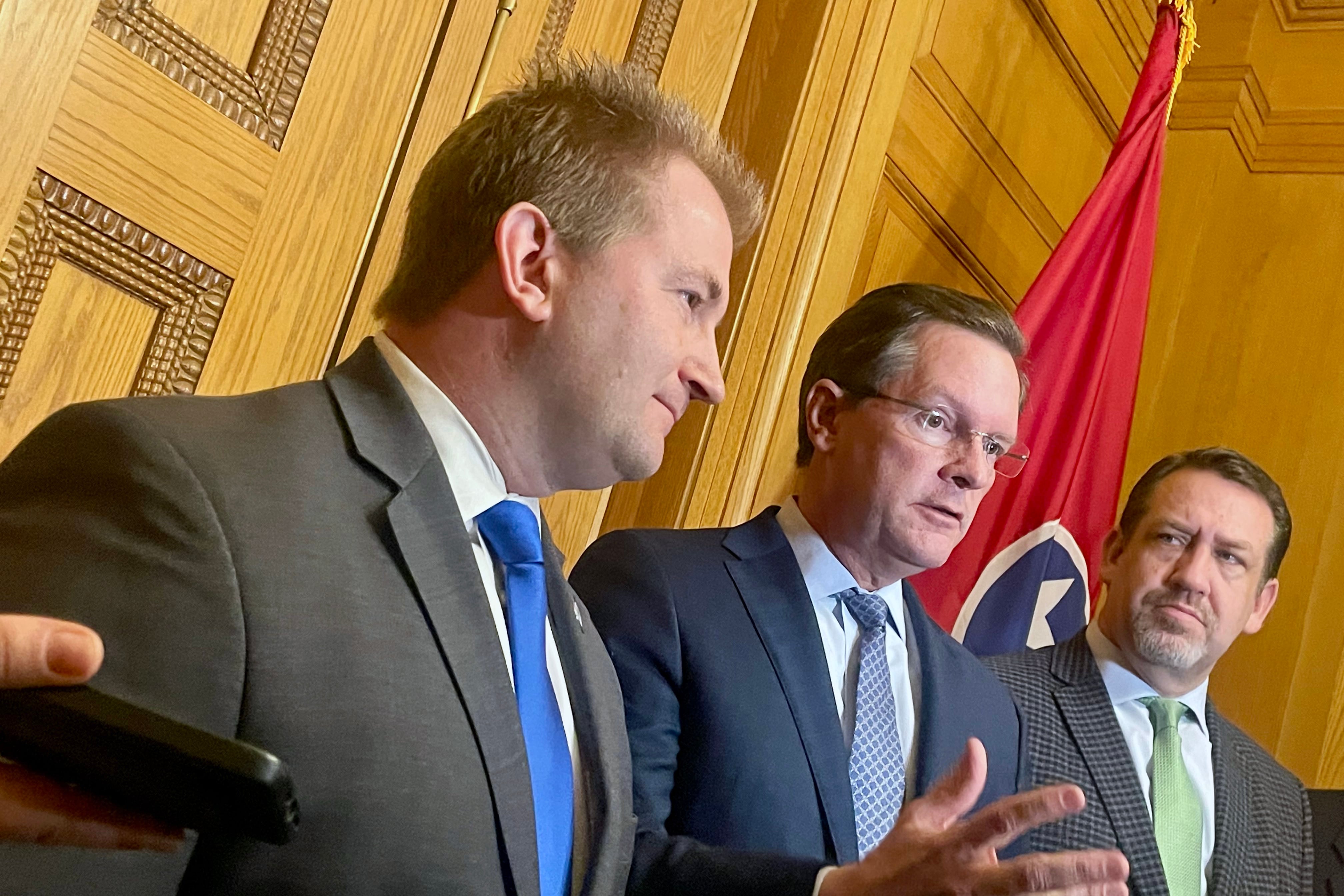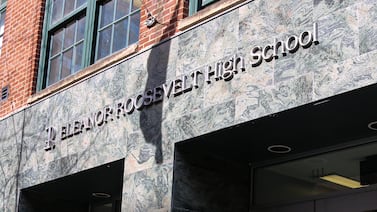Sign up for Chalkbeat Tennessee’s free daily newsletter to keep up with statewide education policy and Memphis-Shelby County Schools.
Three school voucher proposals now before Tennessee lawmakers would create a new statewide program that eventually could open eligibility to all K-12 students, regardless of family income.
But the similarities end there.
The latest version, filed Monday by House Majority Leader William Lamberth, of Portland, has no testing requirements for students who accept public funding to attend private schools. Gov. Bill Lee’s version doesn’t either, but Senate leaders say that approach is a non-starter.
The House plan also would make it easier for middle-class families to access the program during its first year than under the two versions filed last week.
Proposals by the governor and the Senate would reserve the first 10,000 slots for families who are at or below 300% of the federal poverty level. But the House version would bump that to 400% of the poverty level, which equates to $124,800 for a family of four — a departure from Lee’s 2019 Education Savings Account law aimed at low-income families who attend low-performing schools in three urban areas.
The biggest difference, however, is in the House’s sweeping attempt to address a plethora of long-standing concerns by public school officials in a bill purportedly about school choice.
From complaints about overtesting of students to the cost of health care insurance for public school teachers, the 39-page proposal devotes far more pages to existing public school policies than new ones for vouchers.
Last week, House Speaker Cameron Sexton called the upcoming omnibus-style bill an “all-encompassing approach” that’s based on feedback from public school leaders during recent months.
“It’s not just about choice; it is about K-12 education,” Sexton said.
But Democratic leaders vowed that no members of their outnumbered party will support any of the voucher proposals, even if some include policies that they’ve fought for in the past for public schools.
“They’re trying to buy votes,” said Democratic Caucus Chair John Ray Clemmons, of Nashville. “They’re just throwing in everything they can to try to get enough votes to pass this voucher scam.”
Meanwhile, Lt. Gov. Randy McNally, who leads the Senate, said he’d “probably rather stick with the issues at hand” instead of expanding the bill’s scope beyond vouchers.
The legislation could be taken up Tuesday by a House subcommittee and Wednesday in the Senate Education Committee. But GOP leaders say it will be weeks before any votes are held.
Non-voucher proposals for public schools under the House bill include:
- Reducing testing time and possibly pivoting from the Tennessee Comprehensive Assessment Program to a different “statewide standardized assessment.”
- Increasing the state’s coverage of the cost of medical insurance for teachers and staff from 45% to 60%.
- Phasing out the Achievement School District, the state’s turnaround district for low-performing schools, on July 1, 2026.
- Adding several pathways beyond those outlined in a 2021 literacy law for fourth graders to get promoted if they don’t score proficient on this year’s TCAP in English language arts.
- Reducing the number of required evaluations for higher-performing teachers.
- Extending to eight years the validity of practitioner and professional teacher licenses.
- Allowing high school students to take career readiness assessments instead of retaking the ACT exam.
- Increasing the funding weight for small school systems from 5% to 8% under the state’s new K-12 funding structure known as the Tennessee Investment in Student Achievement Act.
- Reducing the frequency of student screenings through the state’s learning intervention program known as RTI.
Much of the disagreement over universal vouchers centers on the voucher program’s cost and how much private schools should be held accountable for results if they accept taxpayer money.
All three pieces of legislation would offer 20,000 vouchers this fall. But the House legislation stipulates that the program would increase by 20% annually if funding is available, while Lee wants to open it up to any student in the second year.
The governor proposes to give each recipient $7,075 this fall, which would cover about 62% of the average $11,344 cost of attending a private school in Tennessee, according to Private School Review.
Legislative staff released an initial financial analysis Monday showing the governor’s program would cost $144 million next fiscal year, which Lee has included in his proposed budget; $346 million the following year for an estimated 47,000 participants; and then exceeding that amount in subsequent years when “the liability to the state could significantly grow.”
Fiscal agents said over 1.12 million students would eventually be eligible to participate, including 155,650 students currently attending nonpublic schools.
“Due to the universal nature of the program, it is assumed that students already attending private school will seek the additional funding through the EFS Program,” the analysts wrote.
The analysts also noted that none of the legislative proposals include a plan to help offset an anticipated decrease in local revenue for public schools as students pivot to private schools.
Marta Aldrich is a senior correspondent and covers the statehouse for Chalkbeat Tennessee. Contact her at maldrich@chalkbeat.org.







